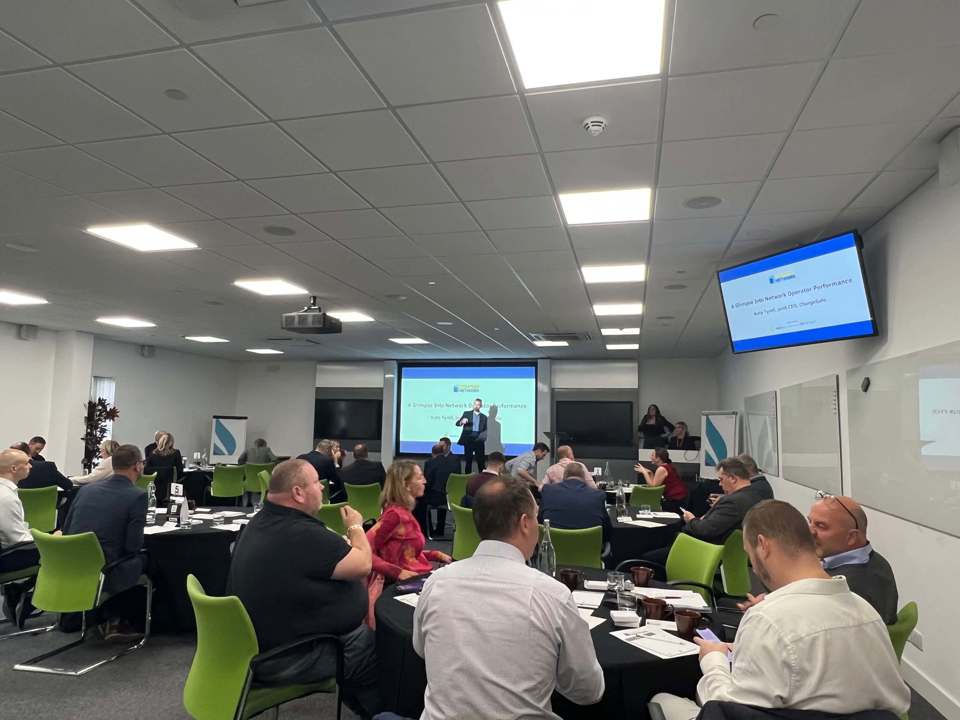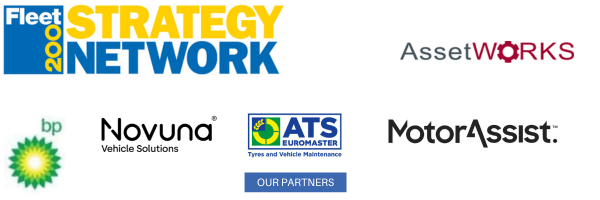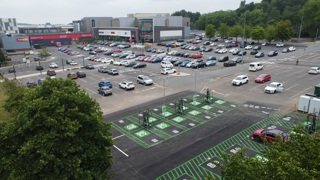Manufacturers have been accused of exploiting EV transition to maximise profits and reneging on contract agreements at the last minute by fleet decision-makers at the Fleet200 Strategy Network meeting in September.
“My company has more than 300 cars, more than 500 vans, 50 trucks and 200 mopeds. Each one presents a decarbonisation challenge and the frustration I have is trying to assess the total cost of ownership for each. It’s changing every day, cost consistency is impossible. We were looking at taking on an EV removal truck. It would’ve been a game-changer, but our costs on it have increased three-fold.”
“It’s very well having a green vision for the future of transport, but unless manufacturers are incentivised to play their part, we won’t collectively be able to achieve it.”
“I see a similarity to the truck cartel that was exposed several years ago*, with manufacturers creating a monopoly on pricing opportunity. Their approach is not to save the planet, but ‘how much money we can make’ on the back of government telling us we need to change to EVs.
“Newer technologies cost more than established. And manufacturers aren’t honouring the costs we’ve agreed with them at order. When it gets to delivery they say the cost has gone up 10-15%. One said they’d seen an increase on chassis from 2 – 6%. I objected to paying and they said fine, they had another customer who is desperation was willing to pay the increase.”
“A manufacturer cancelled an order for 50 vehicles last week because they couldn’t supply on the price we’d agreed. Or they’re downgrading the vehicle spec because they can’t get the components. Contracts are not being honoured.”
“Our transition to EV is geared around switching the easy vehicles first, using telematics data to ensure we can charge at 100% or 80-plus percent on operations. Only 6% of my fleet could switch to EV if I had the charging infrastructure. But I would pay three times more on running costs to charge on electric than I am using diesel in a removal truck. I can’t go to my CFO with that.”
Manufacturers have been accused of exploiting EV transition to maximise profits and reneging on contract agreements at the last minute by fleet decision-makers at the Fleet200 Strategy Network meeting in September.
Manufacturer relations
“My company has more than 300 cars, more than 500 vans, 50 trucks and 200 mopeds. Each one presents a decarbonisation challenge and the frustration I have is trying to assess the total cost of ownership for each. It’s changing every day, cost consistency is impossible. We were looking at taking on an EV removal truck. It would’ve been a game-changer, but our costs on it have increased three-fold.”
“It’s very well having a green vision for the future of transport, but unless manufacturers are incentivised to play their part, we won’t collectively be able to achieve it.”
“I see a similarity to the truck cartel that was exposed several years ago*, with manufacturers creating a monopoly on pricing opportunity. Their approach is not to save the planet, but ‘how much money we can make’ on the back of government telling us we need to change to EVs.
“Newer technologies cost more than established. And manufacturers aren’t honouring the costs we’ve agreed with them at order. When it gets to delivery they say the cost has gone up 10-15%. One said they’d seen an increase on chassis from 2 – 6%. I objected to paying and they said fine, they had another customer who is desperation was willing to pay the increase.”
“A manufacturer cancelled an order for 50 vehicles last week because they couldn’t supply on the price we’d agreed. Or they’re downgrading the vehicle spec because they can’t get the components. Contracts are not being honoured.”
Transition to EV
“Our transition to EV is geared around switching the easy vehicles first, using telematics data to ensure we can charge at 100% or 80-plus percent on operations. Only 6% of my fleet could switch to EV if I had the charging infrastructure. But I would pay three times more on running costs to charge on electric than I am using diesel in a removal truck. I can’t go to my CFO with that.”
Employees in electric commercial vehicles are not professional drivers. Driving is secondary to their principal role. So, expecting them to spend an hour or two at a charge point, they’ll blame someone else for the fact they’re not doing their job – and they will not charge in their time, but yours. And how do you factor that into your productivity measures, and your contract times with customers?”
“There’s another strand of business forming around charging compliancy and the pressure to maximise the capabilities of an EV. You will get HR telling us we didn’t charge it when we were supposed to.”
“You’ve got to pick the commercial drivers that will be able to accommodate EV charging easiest first. Who can charge up overnight, out of hours, in off-street bays etc. They’ll give the best response to change. Then work on the ones that are more difficult, not the other way around as bad news will travel fast within an organisation if you hit obstacles or objections.”
“The drivers keenest on the opportunity to transition to electric vans are self-employed, believing it would reduce their costs. But they’re not so keen because of the complexity of issues involved in running them and the costs have increased.”
“We reimburse drivers charging at home, but it’s not easy when they’re using the public network or clients’ chargers. It’s not easy to get hold of the differing charge rates.”
“It’s possible to use behavioural science to incentivise people to charge at certain times. You could pay people not to charge when there is heavy demand.”
Login to continue reading.
This article is premium content. To view, please register for free or sign in to read it.




















Login to comment
Comments
No comments have been made yet.